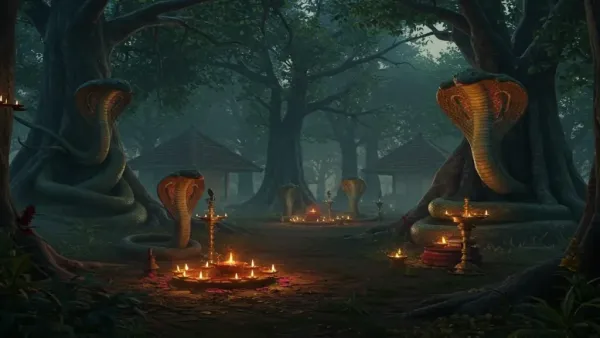
Overview: ‘Kavu’ of Kerala where the gods are still alive
Stories like Kantara are not just fiction but living traditions of South India. Even today, in the Kavu groves of Kerala, people believe that gods reside in trees and forests. During the puja, when the seeker comes under divine influence, the God gives justice and blessings through his voice. This tradition teaches us that nature is God and respecting it is the true religion.
Kantara Kavu Story: Have you ever wondered where the gods reside apart from temples? In the coastal areas of South India, especially on the borders of Karnataka and Kerala, people still believe that gods reside in trees, lakes and forests. This faith is the root of the film ‘Kantara’. When humans forget to do justice, then nature and gods themselves incarnate and do justice.
Bhoot-Kola: The Living Tradition of Kantara
The ‘Bhoota Kola’ shown in the film Kantara is not an imagination, but a hundreds of years old folk tradition of Karnataka. Here the deity is not called a ghost but a guardian deity. The names of these gods are – Panjurli, Guliga, Jumadi etc.
When a seeker does Bhoot-Kola, he becomes possessed by God and starts speaking amidst the fire and dance. His voice, gait and look change. Because it is believed that the gods descend into his body.
Kerala’s ‘Kavu’: Where gods are still alive
In Kerala, these sacred forests are called ‘Kavu’ i.e. forest of Gods. Every village once had a small Kavu, where it was believed to be the abode of the serpent god, Bhadrakali or Yakshi. There are no idols here, but trees, vines and lakes are the form of God. People light lamps in these groves every morning, and perform rituals like ‘Sarappattu’ (serpent dance).
It is also said that cutting trees or digging the ground in Kavu is considered an insult to God. A person doing this faces misfortune.
When God descends into the body
During the puja in Kavu, amidst the sound of drums, lamps and echoes of mantras, there comes a time when the seeker comes under divine influence. At that moment the deity is believed to enter his body. His speech changes, bright light shines from his eyes, and he communicates with people in the form of the power of God.
Sometimes he blesses, sometimes pronounces unjust verdict, and sometimes warns of the future. People say that this divine moment cannot be captured on camera, because it is born from the energy of faith.
When Gods, not humans, do justice
Both Kantara and Kavu have the same philosophy, divine justice. If a person insults the land or the forest, or does injustice to an innocent person, it is believed that the gods themselves descend to punish. Such incidents are still discussed in many villages of Kerala. Sometimes the lamps in Kavu light up automatically at night, and sometimes a person receives a divine warning.
Darshan of Kantara and Kavu
The real message of both these traditions is very simple, nature is God.
Forest, water, land and living beings – all these are forms of God.
Protecting them is worship and insulting them is unrighteousness.
Kantara and Kaavu remind us that when man forgets nature, the gods return to remind him.
-
Dehi blast: Police track nearby vehicles, quiz owners
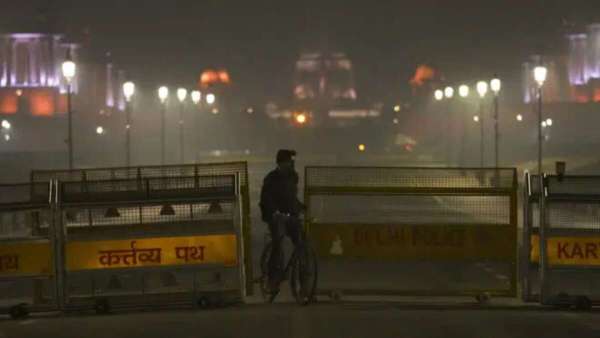
-
Blast at police station in Jammu Kashmir kills 9, injures 27
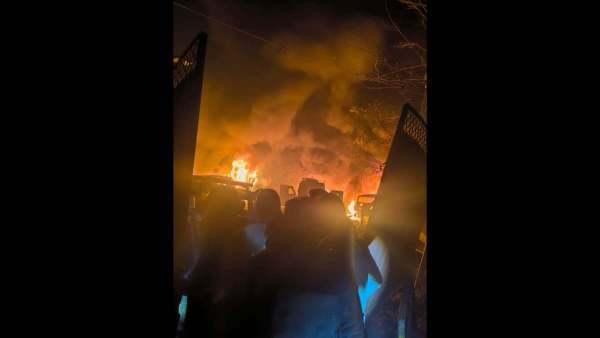
-
CSK Bids Goodbye To Ravindra Jadeja, Welcomes Sanju Samson In Style - Watch
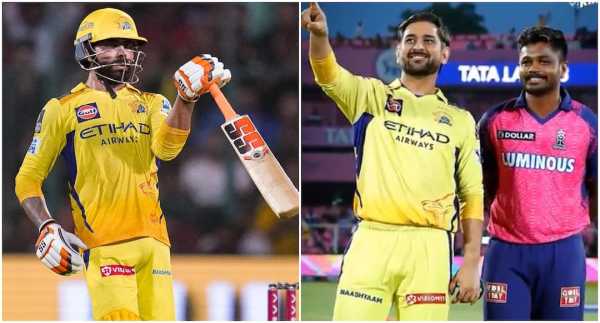
-
NDA's Sanjay Kumar Wins Mahua, Seat Where Row Over Abuses At PM Modi’s Late Mother Began
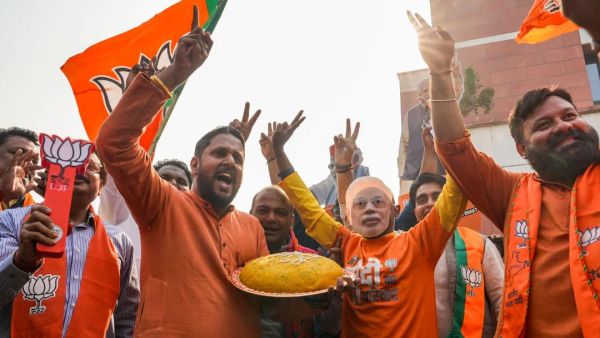
-
Where do house lizards lay their eggs: 10 hidden indoor spots you should check
